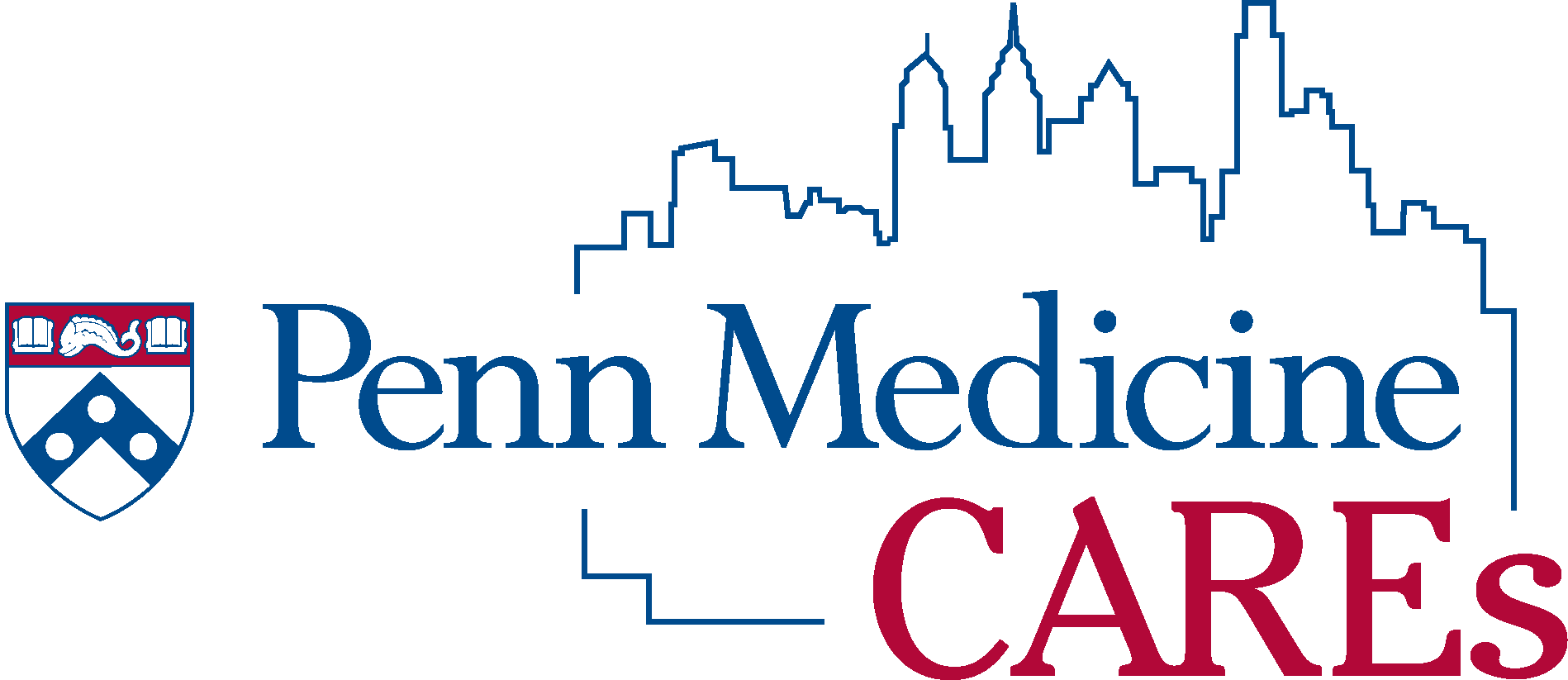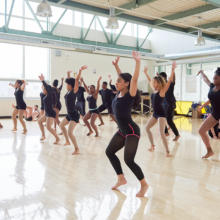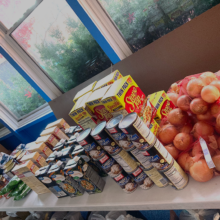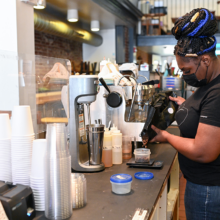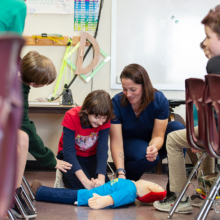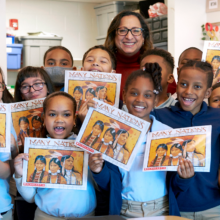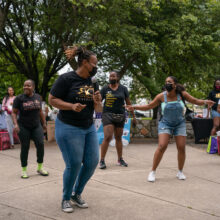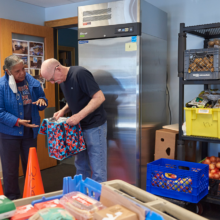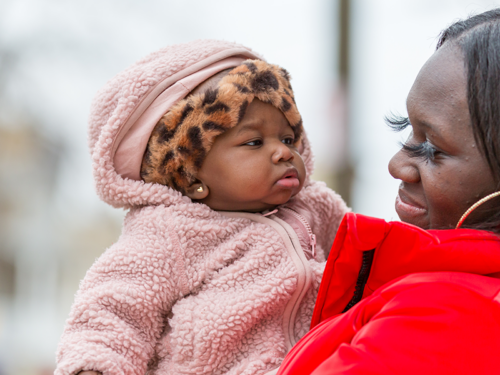

Barbershops and church basements. Roller derby rinks and a refugee health clinic. The places where you can find people from Penn Medicine giving back and making a difference in their local communities are as varied as you can possibly imagine.
For more than a decade, Penn Medicine has provided financial support to help staff, faculty, and students to extend their impact on the community through the Penn Medicine CAREs grant program. The grants of up to $2,000 each allow recipients to purchase supplies or other resources for their outside volunteer efforts.

The Philly Roller Derby Juniors, a league co-founded by Faith Cortright, a patient services coordinator in the Perelman School of Medicine, received CAREs grants in 2019 and 2022. The league is an outlet for young people to build strength, leadership skills, and confidence. The CAREs grants Cortright applied for helped young skaters for whom costs were a barrier, whether for equipment or travel costs. This summer, the All-Stars team traveled to the national 2022 Junior Roller Derby Association Championships in Phoenix — and won! Read more on the Penn Medicine News Blog.
Penn Medicine CAREs opened for applications in January 2012 and announced its first slate of winners in March of that year. Applications are always open, and grants have been awarded on a quarterly basis ever since.
Penn Medicine announced in January 2024 that the program surpassed $1 million in funding in over 1,000 total grant awards to support service initiatives across the regions Penn Medicine serves.
“The passion for service among people who work here is incredibly inspiring,” says Laura Kim, manager of Community Relations for Penn Medicine, who oversees the CAREs grant program. “You see someone who, nine to five during the day, works as a secretary for a unit in one of our hospitals, and then on the weekends they’re feeding the homeless and they’re out with their kids really giving back to the community. People like that are just golden.”
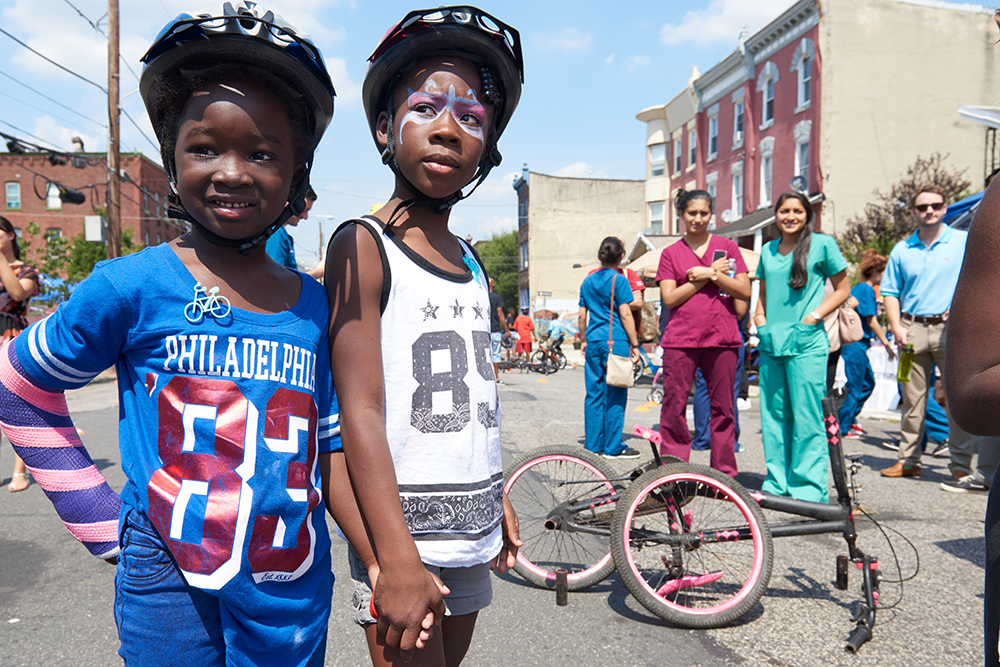
The United Community Clinic’s Bike Rodeo combines a bike and helmet giveaway for youth with an all-ages community health fair in the Parkside neighborhood of West Philadelphia, which has received multiple CAREs grants to multiple Penn Medicine staff and PSOM students since 2013.
After running for more than ten years, the CAREs grant program has had opportunities to award multiple grants to organizations and initiatives that have longstanding relationships with Penn Medicine staff and Perelman School of Medicine (PSOM) students. Many of these are organizations whose service missions are deeply intertwined with Penn’s, such as centers where PSOM students and Penn Medicine faculty have volunteered for decades like the United Community Clinic (UCC), University City Hospitality Coalition (UCHC), Unity Health Clinic, and Puentes de Salud.
CAREs grants over the years have funded programs and supplies at UCC’s free health clinic in West Philadelphia ranging from covering the costs of eyeglasses and vision exams for patients, to HIV testing supplies, as well as support for UCC’s popular bicycle rodeo that combines a bike and helmet giveaway for youth with an all-ages community health fair.
UCHC is home to numerous community programs including a student-run medical clinic that has used CAREs funding to purchase new laptops and medical supplies, and the Service Link program that connects community members with social services.
Unity Health Clinic in South Philadelphia is staffed by volunteer physicians, nurse practitioners, and health professional trainees from the University of Pennsylvania and Villanova University. CAREs grants in recent years have funded a musculoskeletal clinic, telehealth technology, and supplies to help patients with testing and monitoring supplies for high blood pressure and diabetes.
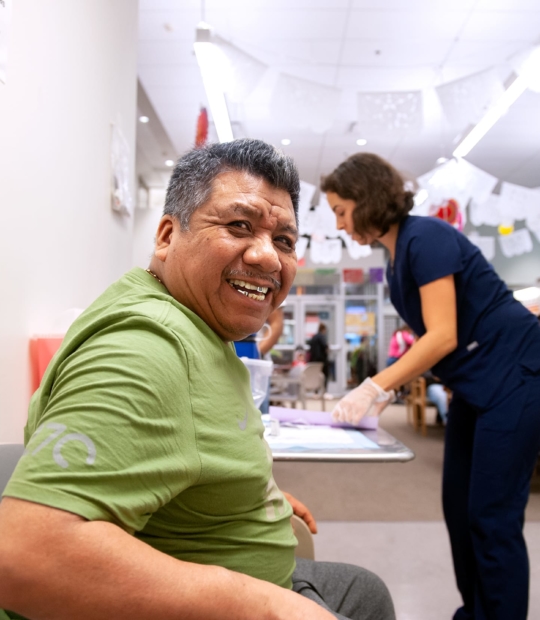
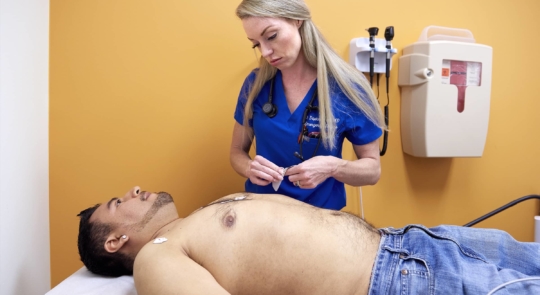
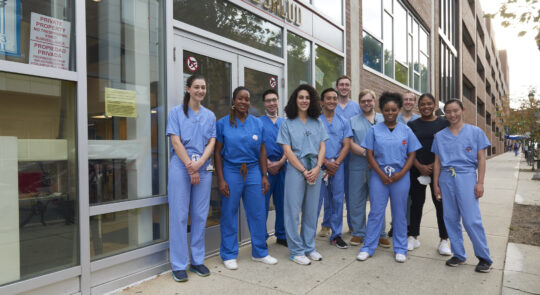
Often, Penn Medicine staff and students find that a CAREs grant can help them take their ideas for community service to a new level and support the launch of new efforts. For example, the interdisciplinary Center for Surgical Health (CSH) at Penn Medicine was created to improve access to and navigation through surgical care for Philadelphia’s underserved communities. Lauren Rossi, CSH’s program manager, received a CAREs grant to help the center’s patients with one of their biggest challenges: access to reliable transportation to surgical appointments. Transportation needs for patients differ, ranging from one trip the day of surgery to five days a week for three months for chemotherapy treatment required before the surgery, and the grant helps support funding for taxi services and parking passes.
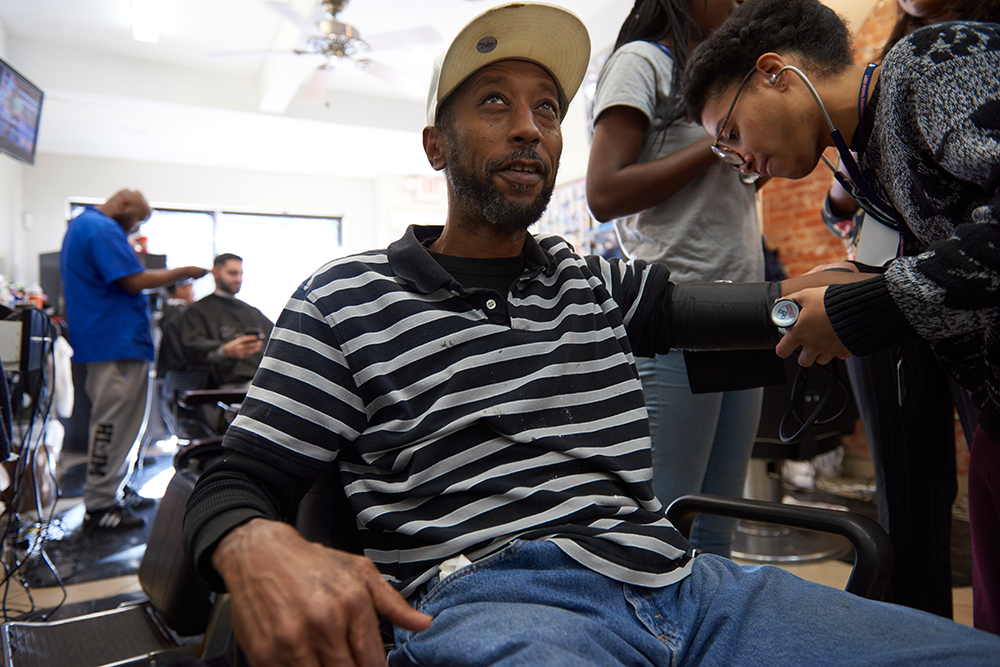
At local barbershops, PSOM students share health information and offer hypertension screenings to patrons through the Cut Hypertension program. Founded in 2010 at Penn, Cut Hypertension has received several CAREs grants over the years, as new cohorts of medical students continually sustain the program.
The relationships forged between Penn Medicine students and staff with the communities they serve grow and deepen over the years. One of the earliest CAREs grants awarded in 2012 went to Kenji Taylor, MD, then a PSOM student, for Cut Hypertension, a program he had helped create with other students in 2010 to offer preventive screening and health education, especially to Black men, in West Philadelphia barbershops. Taylor went on to establish more chapters of Cut Hypertension across the country and expand this model of community health outreach, while generations of PSOM students continue to maintain relationships with Philadelphia barbershops year after year. The relationships are so strong that barbershop and salon owners turned to PSOM students for help managing COVID-19 risks early in the pandemic.
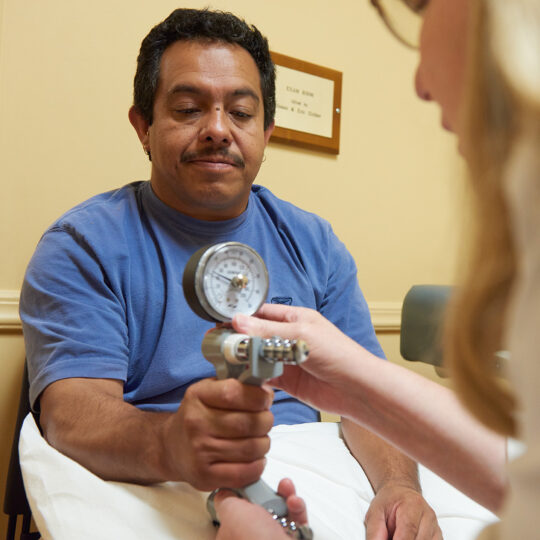
When the CAREs grant program began, Penn Medicine was a health system with three hospitals, all in Philadelphia. As the system grew to include more hospital entities from across the region, starting with Chester County Hospital in 2013, Lancaster General Health in 2015, and Princeton Health in 2018, staff from all of these hospitals began to take part in the CAREs grant program. As a result, Penn Medicine’s impact on communities across the wider region has grown.
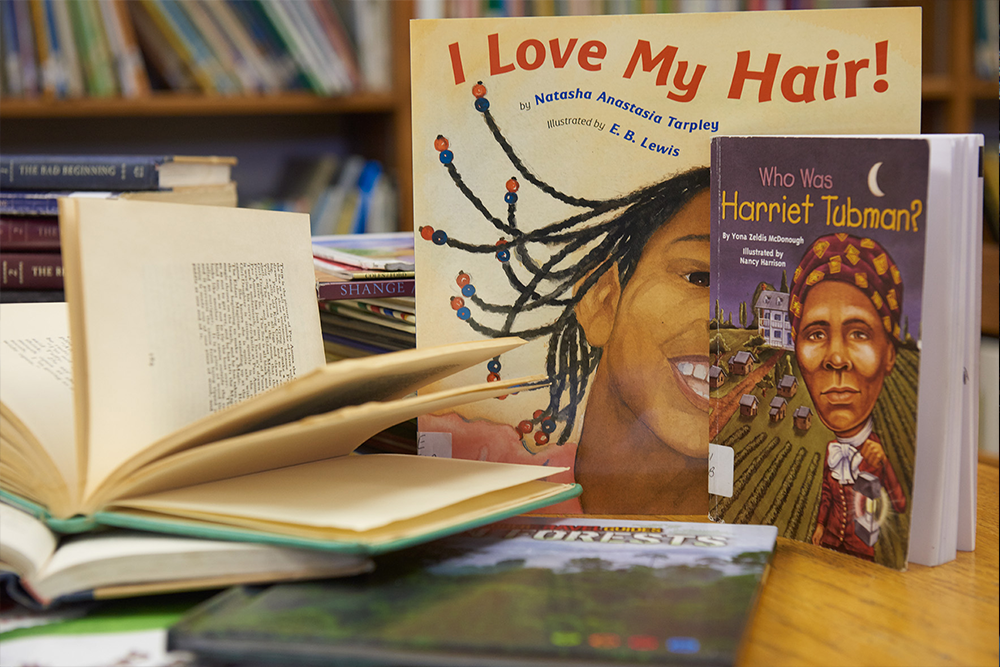
The West Philadelphia Alliance for Children (WePAC) has been reopening shuttered school libraries, staffing them with volunteers like Penn Medicine trauma center outpatient coordinator Janet McMaster, RN, and filling shelves with circulating books. McMaster has won CAREs grants for WePAC to purchase books centered on characters of color, as well as books that children can use to help understand traumatic situations or connect with others who are different. McMaster was the inaugural recipient of the Penn Medicine CAREs Community Champion Award in 2019.
In 2018, the Penn Medicine CAREs program secured additional funding and was able to double the number of grants given out each year. Since 2019, a recipient of a CAREs grant each year has been selected to receive an annual CAREs Community Champion Award with an additional $5,000 to support their chosen volunteer effort or organization, in recognition of that individual’s sustained commitment to community.
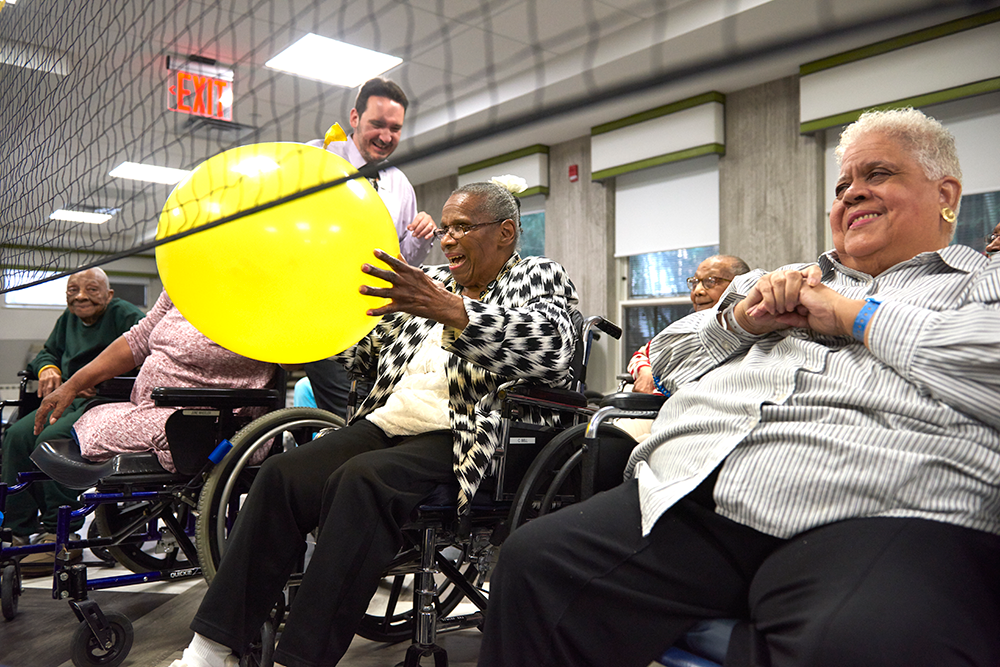
When Penn Medicine geriatric nurses Rasheda Peoples-Starling, RN, BSN-BC, and Sheila Anderson RN, BSN, realized their patients were struggling to stay active on a regular basis, they decided to team up with local nursing homes to get them moving in the right direction. In 2018, they received CAREs funding to buy supplies for their program, “Elders on the Move,” which brings Penn Medicine staff into local nursing homes with equipment, music, and motivation to get residents engaged in indoor sports and activities. Watch a video here.
Today, representatives from across Penn Medicine review applications for CAREs grants as part of the quarterly selection process. Kim makes herself available to help staff strengthen their applications before submission, even matching people up with others across the organization who can be mentors with similar community service goals.

Cheryl Graham-Seay, a program manager at the Penn Center for Community Health Workers, founded the Jarell Christopher Seay Love and Laughter Foundation in memory of her son, who was killed in an act of gun violence in 2011. She has received several CAREs grants to support the Foundation’s youth empowerment and violence prevention programs, including an annual backpack giveaway and the Ladies in Power for Peace girls’ program.
The selection committee looks at the community needs that a grant will support, and the strongest applications are those that align with health needs identified through the community health needs assessment process completed by Penn Medicine’s hospitals every three years. The committee also considers how the program will evaluate and report outcomes.
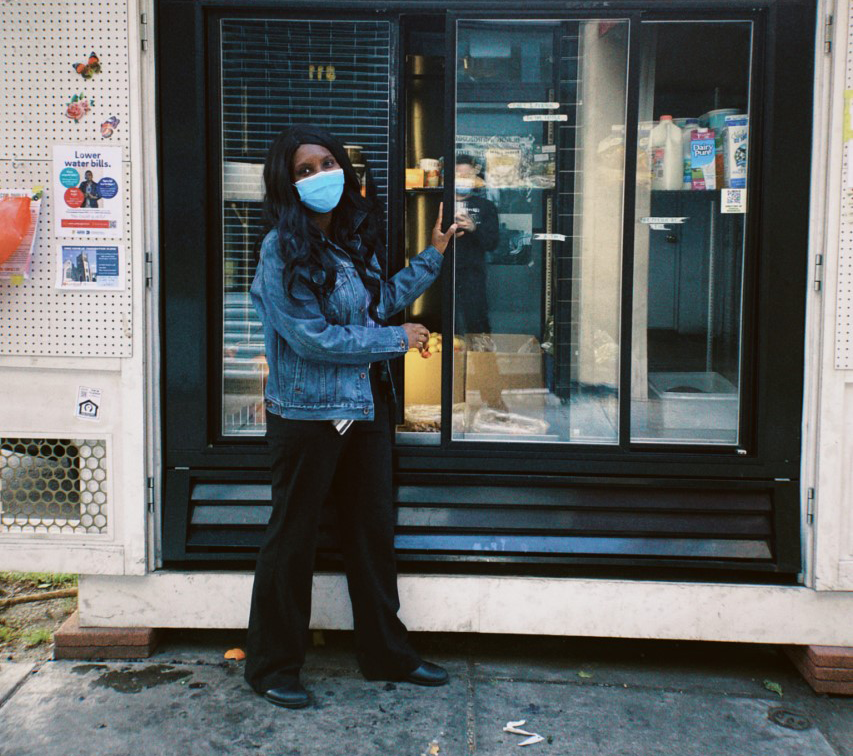
The People’s Fridge on 52nd was started in West Philadelphia in the summer of 2020 to help with the nutritional needs of those in the community which were exacerbated by COVID-19. Desuana Dubose, an administrative secretary in Cardiology at Penn Medicine, has volunteered helping to clean and stock the fridge from the very beginning. Dubose has twice received CAREs grants to support the cost of fresh groceries for this mutual aid initiative. Read more in System News.
Last year, more than a quarter of the grants contributed to addressing socioeconomic disadvantage.
But overall the ways that Penn Medicine staff and students give back through CAREs grants are incredibly diverse. Twelve percent addressed food access and food insecurity, and about 10 percent of grants helped with each of several community health factors: access to care, chronic disease prevention and management, substance use and related disorders, health care and health resource navigation, and community violence.
CAREs grants act as an amplifier of community outreach in more ways than one. They not only provide funding to give community-based programs a boost, but each CAREs recipient who shares their experience can be a catalyst for others who want to help others in need, wherever they are.
Grace Hanson, for example, an administrative assistant in Plastic Surgery, received a CAREs grant to provide care packages for emotional support to members of her church who are caregivers to ill or aging family members at home.
“Caregivers are one population who don’t ask for help. They struggle and they don’t want to say they’re hurting,” Hanson said. “With the Penn Medicine CAREs grant, I know our program will go further, and we hope to inspire others to take action to support caregivers in their communities.”
An earlier version of this article was originally published on October 17, 2022.


